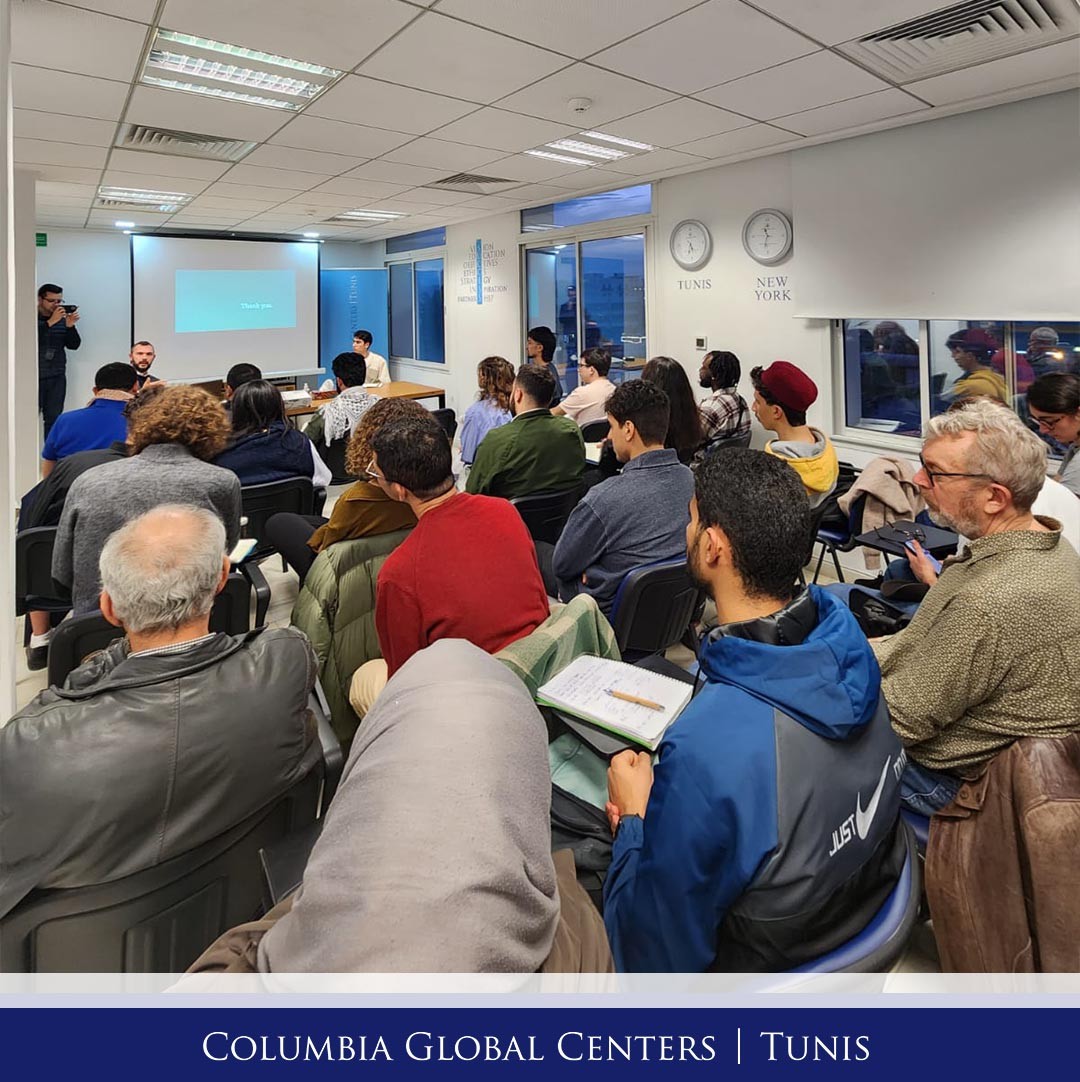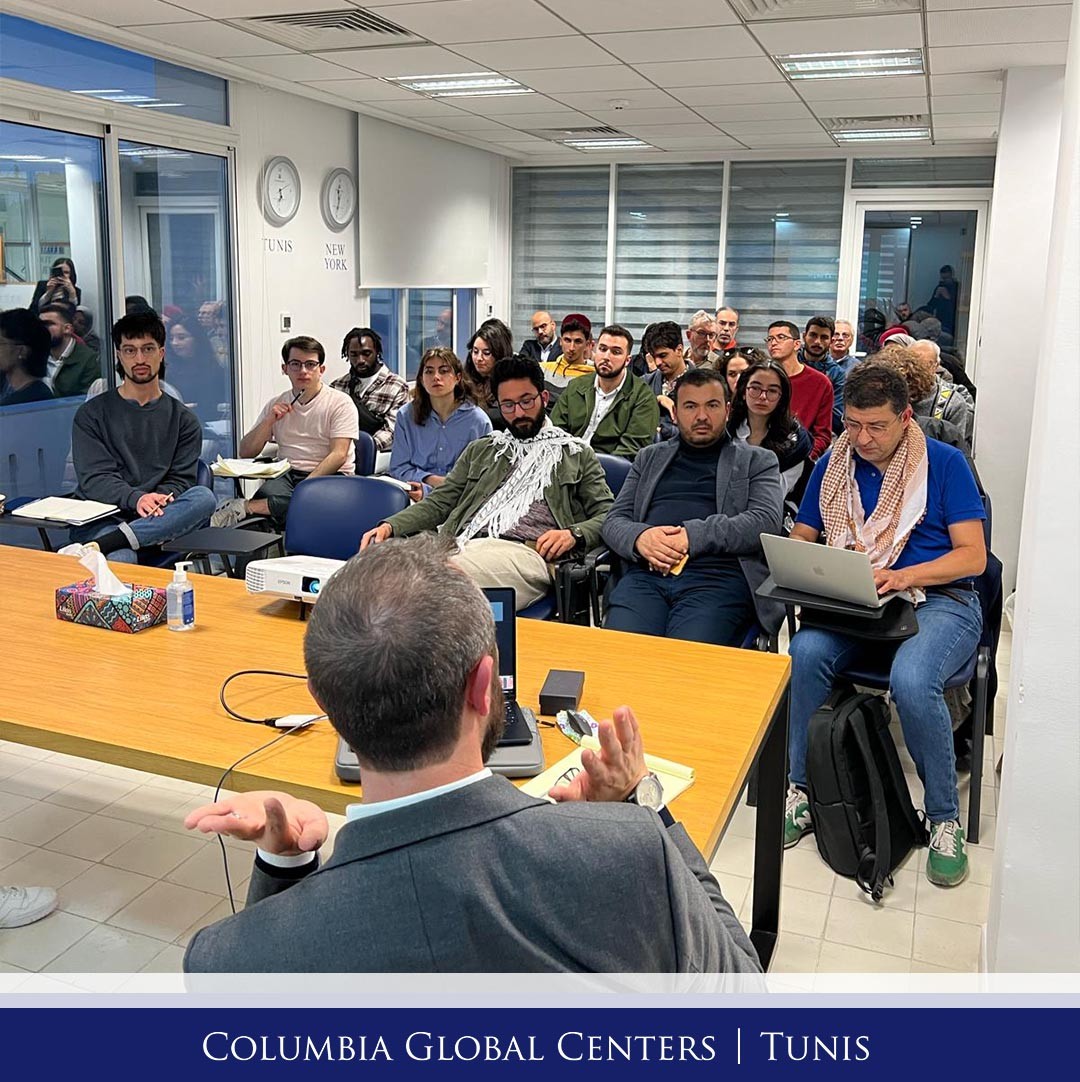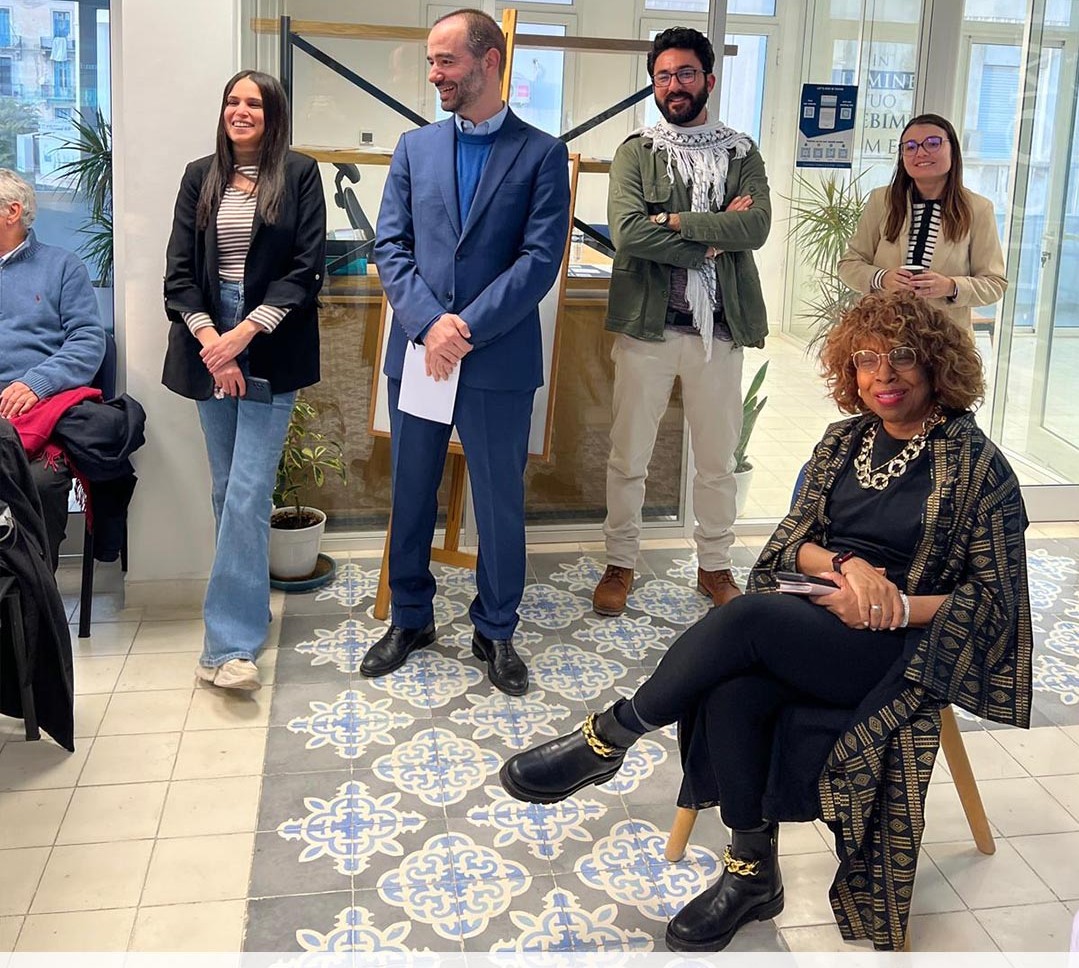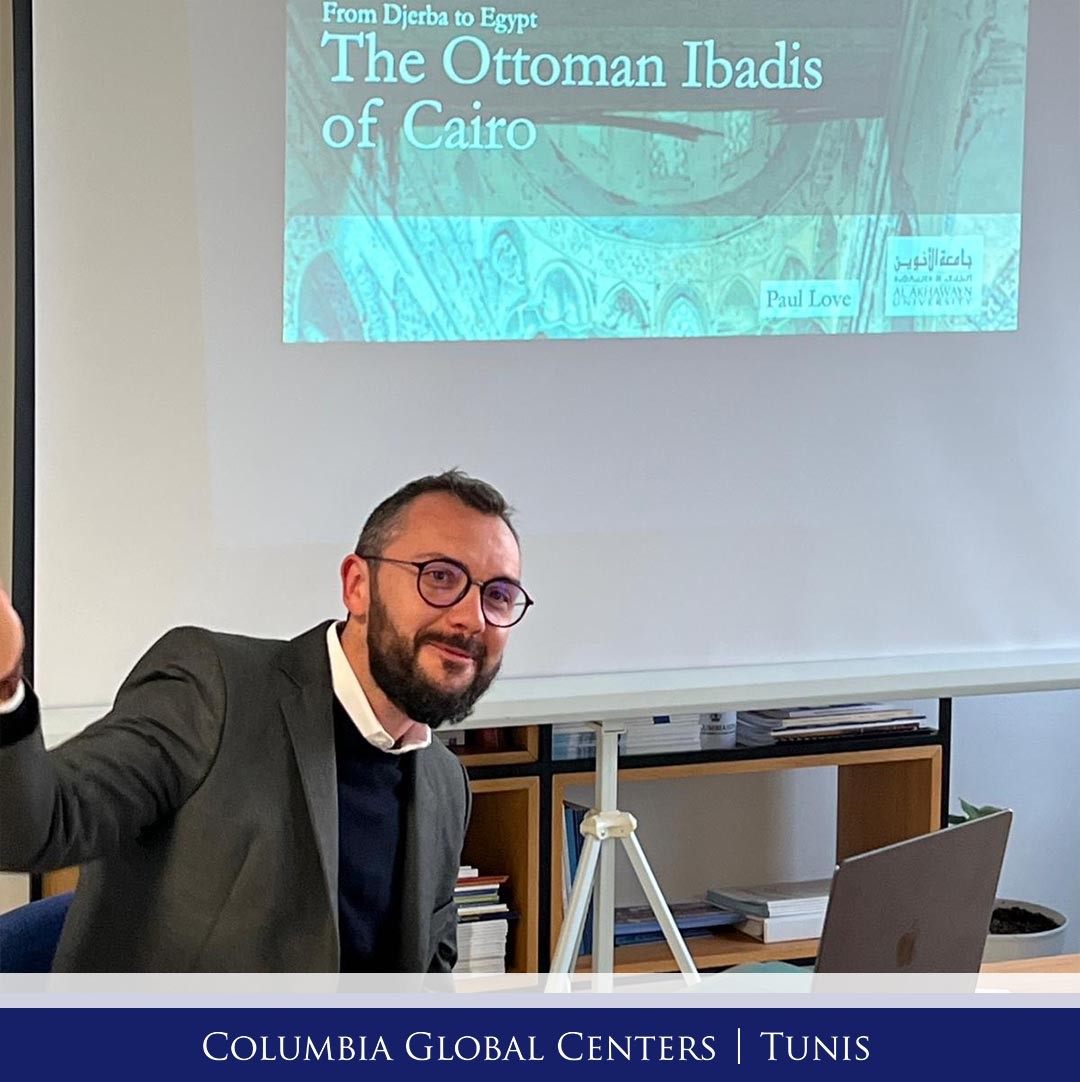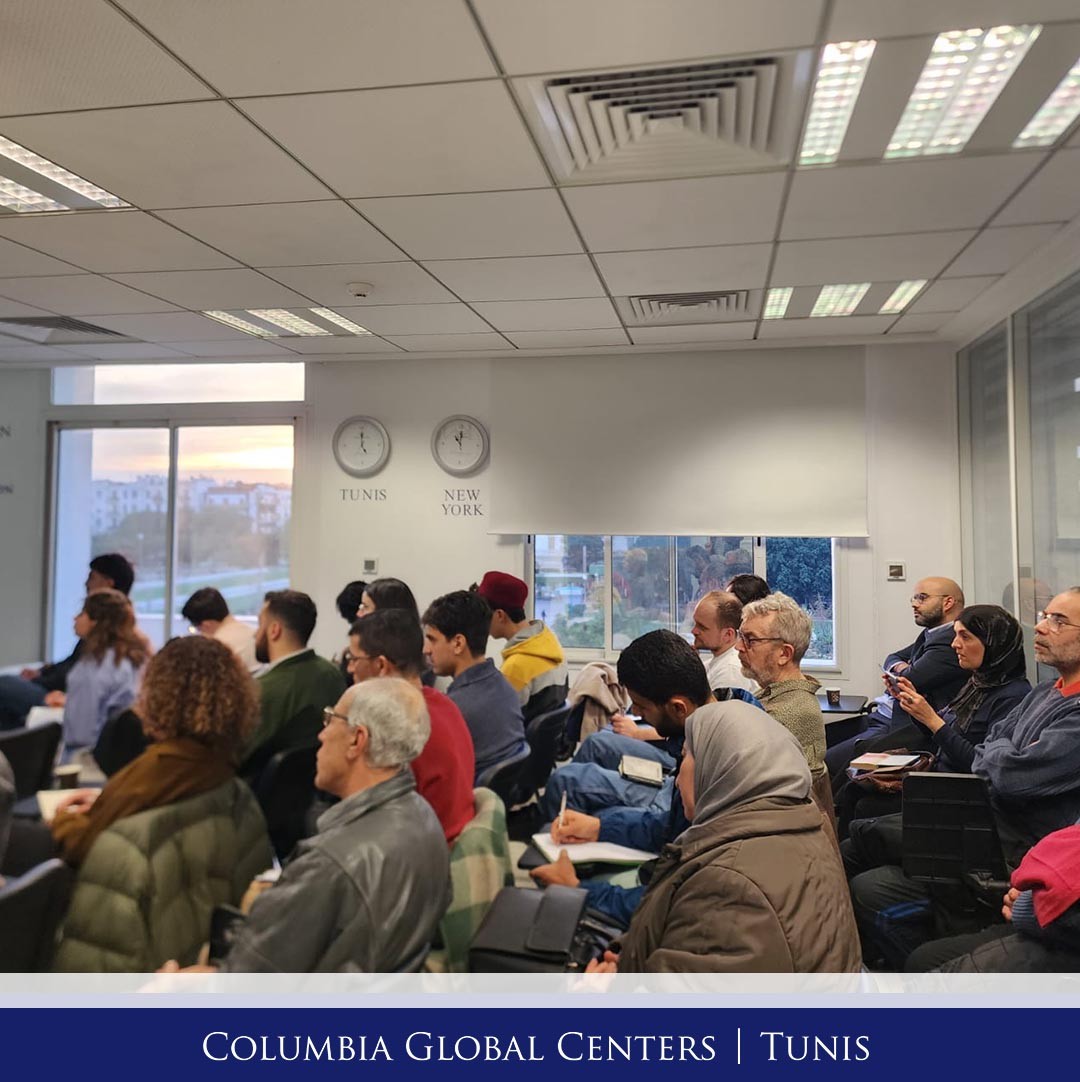From Djerba to Cairo: Tracing the History of the Ibadi Muslims
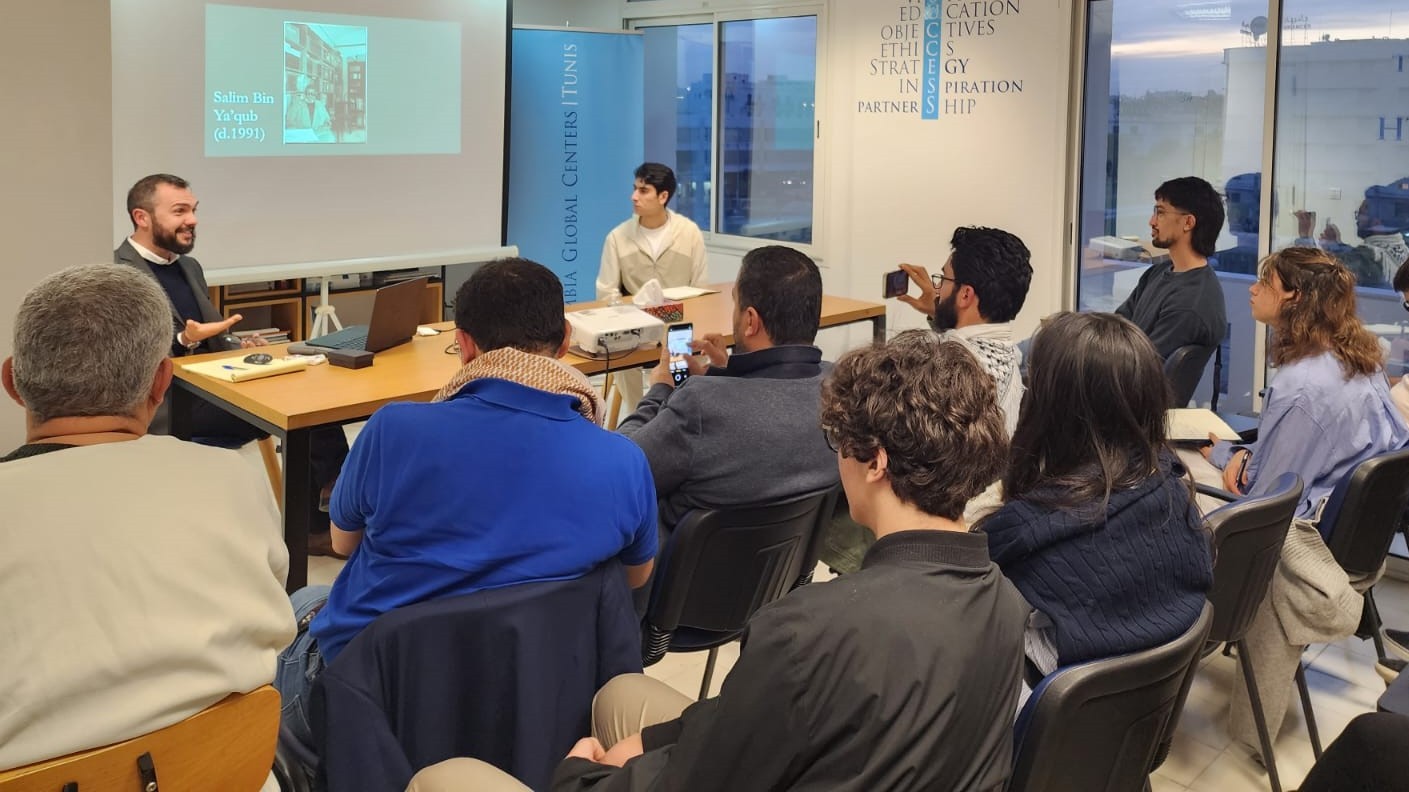
On January 5th, CGC Tunis hosted Pr. Paul Love, Associate Professor of North Africa, Middle Eastern, and Islamic History at Al Akhawayn University, Ifrane, Morocco.
Pr. Love, the author of 'The Ottoman Ibadis of Cairo' (Cambridge University Press, 2023), delivered a talk on the social history of the Ibadi Muslims—a Non-Sunni, Non-Shi’i minority Muslim community with historical roots in the Maghreb, Arabian Peninsula, and East Africa.
Spanning from the seventeenth to the twentieth centuries, members of this community embarked on journeys from Djerba, Tunisia, to Cairo, Egypt, seeking financial, spiritual, or intellectual gain. For some, Cairo became a brief stop; for others, it transformed into a lasting home.
By choosing Cairo as their new home, the Ibadi Muslims became a minority at the heart of the Ottoman Empire and a Muslim minority within the broader Muslim majority. What further elevates the importance of this narrative is the lasting impact left by the Ibadi Muslims in the city of Cairo. Beyond leaving an indelible mark on Cairo's cultural landscape, the Ibadis actively participated in the religious, political, legal, and commercial life of Ottoman Egypt. This participation is exemplified by the ‘Buffalo Agency’ (Wikalat al-jamus), a trade agency, school, and library that the Ibadis operated for nearly four centuries in the Tulun district of Cairo. From its founding in the 17th century to its closure in the 20th, the Agency served as a waystation for students, scholars, and merchants on their journeys through Cairo.
In the tapestry of history, the Ibadi Muslims emerge as a unique thread, deliberately weaving themselves into the fabric of Ottoman Cairo. Their ability to uphold a distinct community identity while seamlessly integrating into the broader society sets them apart as a remarkable minority within the heart of the empire. This narrative isn't confined to the pages of history; it transcends time, serving as a timeless reminder of the strength derived from unity within diversity.
